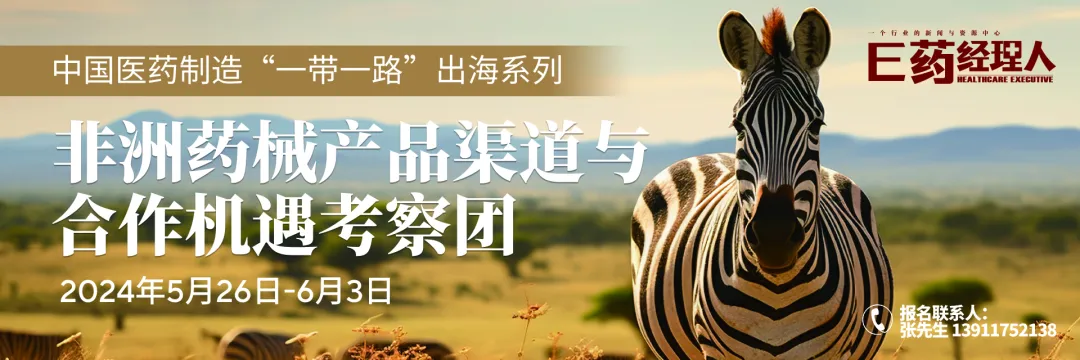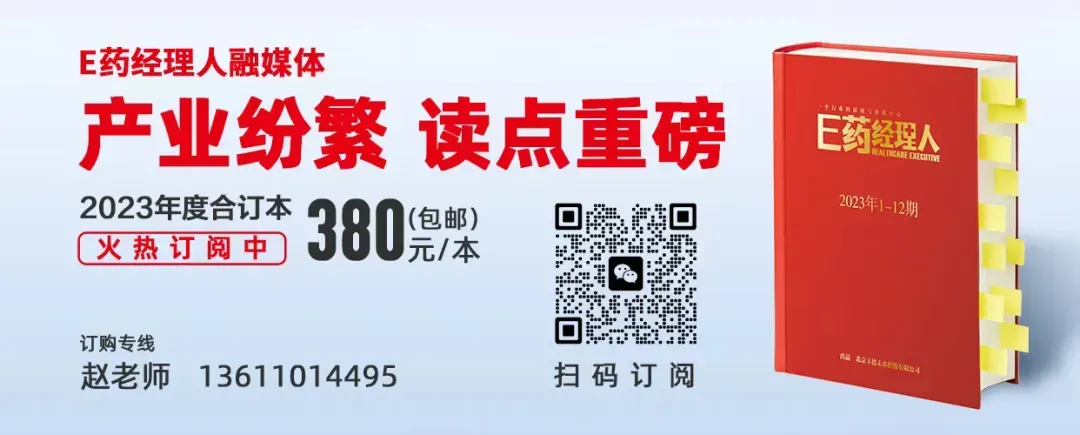
 Recently, many traditional Chinese medicine (TCM) brands have encountered difficulties.
Recently, many traditional Chinese medicine (TCM) brands have encountered difficulties.
Written by | Erin
Edited by | Dunhe
With a history of 457 years, Tai’an Tang Pharmaceutical has finally maneuvered itself towards delisting.
On the evening of May 6, with an announcement, the financial fraud saga of ST Tai’an (Tai’an Tang Pharmaceutical) reached its conclusion: the Shenzhen Stock Exchange proposed to terminate the company’s stock listing. On May 7, ST Tai’an’s stock was already in a suspended trading state.
While leading TCM companies like China Resources Sanjiu, Taiji Group, Yunnan Baiyao, and Baiyunshan have sparked a frenzy in the secondary market due to strong performance, the other side of the coin reveals that TCM enterprises are also a “disaster zone” in the secondary market, facing delisting risks and financial fraud, especially the well-known TCM brands that have become key targets for “踩雷” (踩雷 means to step on a landmine, metaphorically referring to encountering unexpected problems).
In addition to Tai’an Tang, Jiu Zhi Tang and Guizhou Bai Ling have also received “risk warnings” from the Shenzhen Stock Exchange due to internal control issues, donning the “ST” hat; the century-old brand Guang Yu Yuan, which has been involved in financial fraud for eight consecutive years, has seen its executives rotate, leading to its performance being mired in difficulties.
Furthermore, following the recent issuance of the State Council’s “Several Opinions on Strengthening Supervision to Prevent Risks and Promote High-Quality Development of the Capital Market” (referred to as the new “National Nine Articles”), Guizhou Bai Ling, which has not distributed dividends for three years, has also become one of the companies stepping on the “red line”.
Being placed under ST due to underperformance, financial fraud, and operational chaos, the experiences of these old brands prove that no matter how old the brand is, encountering “unreliable” operators who do not focus on internal strength and wish to make quick profits while straying from their resource endowments, especially under tightening policies and capital market regulations, can lead to a self-entrapment outcome that is more severe than anticipated.

Old Brands That Only Bury “Landmines” Without Clearing Them
Counting the reasons why TCM old brands have “踩雷”, issues such as non-operational occupation of funds by controlling shareholders, financial fraud, operational chaos, and inflated sales expenses all point in one direction — they want to tell a good “money-making” story but have taken the wrong approach and found the wrong path.
Tai’an Tang is a case in point.
Tai’an Tang Pharmaceutical was founded by Ke Shuqian, the 13th generation heir of the Tai’an Tang Medical Hall. Although it was officially named in 2010, its history can be traced back to the Ming Dynasty’s Longqing era, when the scholar and imperial physician Ke Yu established the Tai’an Tang medical hall in Chaozhou, boasting a history of 457 years.
In earlier years, under the leadership of founder Ke Shuqian, Tai’an Tang Pharmaceutical indeed experienced a long period of glory, with its first product, Pi Bao Cream, followed by Qilin Pills and Xin Bao Pills, leading to a ninefold increase in revenue over ten years, with a market value once reaching 17 billion yuan, and the Ke family even made it onto the Hurun Rich List.
More eye-catching than performance was Tai’an Tang’s brand image building, including the construction of the largest TCM family exhibition hall — the Tai’an Tang TCM Museum; compiling the 108-volume “Tai’an Grand Compendium”; and the traditional production technique of Qilin Pills being awarded the title of National Intangible Cultural Heritage…
Like the previously troubled Kangmei, Tai’an Tang began to dance in the “landmine” zone, stemming from its diversified operations, extending its reach into real estate projects, investing in the construction of the “Tai’an Tang Medical and Health Town” in 2017.However, contrary to expectations, just as Tai’an Tang ventured into real estate, it did not reap the benefits but instead encountered the first shockwave of the real estate bubble burst, with its liquidity being directly trapped.
Since 2018, Tai’an Tang has been attempting to save itself through asset sales and mortgage financing, with its flagship products Xin Bao Pills and Xiao Chai Hu Granules also on the selling block. However, the listed company faced liquidity shortages, declining revenues, and illegal fund occupation by the founding family, leading to a company already riddled with holes.
As of December 31, 2023, Tai’an Tang’s market value had shrunk to one-tenth of its peak, not only suffering continuous operational losses for three consecutive years but also facing a staggering debt ratio of 88.17%. The bankruptcy reorganization pre-restructuring process implemented in 2023 was also ruled by the court to be terminated, with delisting being just the first step, and the company still facing enormous debt repayment risks in the future.
Another company recently placed under “ST”, Jiu Zhi Tang, has sparked broader discussions due to the popularity of its core product, Liu Wei Di Huang Wan (Six Flavor Rehmannia Pill).
Like Tai’an Tang, Jiu Zhi Tang originated in the Shunzhi era of the Qing Dynasty, boasting a history of over 370 years. It not only holds the prestigious title of a Chinese time-honored brand and is listed in the national intangible cultural heritage protection catalog but was once on par with Tong Ren Tang, often referred to as “North Tong Ren Tang, South Jiu Zhi Tang”.
History has lengthened the trials of Jiu Zhi Tang. In the early 21st century, the Yongjin Group took over Jiu Zhi Tang, which once caused it to lose its “medicinal flavor” and become a financing platform. However, following the sudden death of Yongjin Group’s leader Wei Dong in 2008, the tumultuous relationship with the Yongjin Group came to an end, leaving Jiu Zhi Tang in an operational crisis.
The recent instigator of Jiu Zhi Tang’s “ST” status, Li Zhenguo, had previously appeared as a “white knight” figure ten years ago. In 2015, Youbo Pharmaceutical replaced Yongjin Group and took control of Jiu Zhi Tang, with its chairman Li Zhenguo not only becoming the new actual controller of Jiu Zhi Tang but also bringing the then “miracle drug” TCM injection Shuxuetong, which restored Jiu Zhi Tang’s performance.
Before 2017, it was the “golden age” for TCM injections, with Youbo’s Shuxuetong and Zhongheng’s Xue Shuan Tong being highly sought after by pharmaceutical agents, with obtaining agency rights meaning “easy profits”, both products generating annual revenues in the tens of billions.
Thus, in the first three years after Li Zhenguo took over Jiu Zhi Tang (2015-2017), Jiu Zhi Tang’s profits indeed saw qualitative improvements. However, after the 2017 version of the medical insurance catalog listed Shuxuetong injection as restricted for use, Jiu Zhi Tang’s performance began to decline continuously, with a 62.47% drop in net profit attributable to the parent company in 2018.
However, Jiu Zhi Tang, having thrived, also faced its downfall due to significant defects in financial management and internal controls, with the actual controller Li Zhenguo’s occupation of listed company funds eventually being disclosed, and the auditing agency issuing a negative opinion on Jiu Zhi Tang’s “Internal Control Audit Report”, leading to the suspension of its stock and the “ST” designation by the Shenzhen Stock Exchange.
Guizhou Bai Ling, known as the “first stock of苗药” (Miao medicine), was also placed under “ST” on May 6, coinciding with Tai’an Tang’s delisting announcement, due to its auditing agency issuing a negative opinion on Guizhou Bai Ling’s “Internal Control Audit Report”, citing significant defects in internal controls related to market development and promotion service fees, including untimely and incomplete provisions.
RecommendedReading
* Leading entrepreneurs reflect on the TCM industry’s trends, conclusions, and discourse power! The first TCM CEO Forum is set to convene.* With a maximum of 3.7 billion, TCM’s “lavish” dividends, Yunnan Baiyao, Baiyunshan, and China Resources Sanjiu rank among the top 10 most profitable pharmaceutical companies in A-shares.

Bad and Good Students in TCM
TCM enterprises that have not kept pace with the times are not just the old brands.
The impact of the centralized procurement of Chinese patent medicines has been most profound on companies like Dali Pharmaceutical and Longjin Pharmaceutical, which have been placed under “ST” recently due to continuous losses, with the core reason being that major products entered centralized procurement, leading to profit declines.
From the experiences of these companies, one can glimpse the current development direction of the TCM industry: the policy support for the high-quality development of TCM emphasizes “high quality”; TCM enterprises that align with the rhythm of inheritance and innovation can naturally ride the policy wind; while products with inflated prices, not meeting clinical needs, and market demands will be closely monitored and squeezed by policies such as the monitoring catalog and centralized procurement of Chinese patent medicines.
Of course, there are still “good students” among TCM enterprises. Time-honored brands like Yunnan Baiyao, Dong’e Ejiao, and Taiji Group have found their growth paths, while China Resources Sanjiu, though not a time-honored brand, has also established its own brand-building methods, boasting 39 varieties with annual sales exceeding 100 million yuan. Companies like Kang En Bei and Tian Shi Li, which once faced performance challenges, have also rediscovered their growth paths.
For instance, Yunnan Baiyao has continuously adjusted its strategies amid changing environments, but has always extended around “medicine + consumption”.By 2023, Yunnan Baiyao not only maintained good growth momentum for its core Baiyao series products, with a gross margin exceeding 70%, but also developed multiple other TCM products with sales exceeding 100 million yuan. Its health product division’s revenue has become comparable to its main pharmaceutical business, with sales reaching 6.422 billion yuan in 2023, and Yunnan Baiyao toothpaste has maintained the number one market share in the domestic market for many years.
Dong’e Ejiao, after experiencing a round of executive turmoil and inventory adjustments, has seen significant results from its value reconstruction and brand renewal strategy, with its performance returning to a high growth path, ranking first in the category of Chinese patent medicines for tonifying qi and blood.
In 2023, Dong’e Ejiao achieved revenue of 4.715 billion yuan, a year-on-year increase of 16.66%. This marks the fourth consecutive year of positive growth for Dong’e Ejiao since its performance plummeted in 2019, and it is also the highest growth rate in nearly six years.
Among the top 10 listed pharmaceutical companies in A-shares by net profit in 2023, three leading TCM companies, Yunnan Baiyao, Baiyunshan, and China Resources Sanjiu, ranked in the top ten, with net profits of 4.094 billion yuan, 4.056 billion yuan, and 2.853 billion yuan, respectively.
These companies can maintain their leading positions in TCM and find new growth paths in the new phase of the pharmaceutical industry. An industry insider told E-Pharmacy Manager that the core reason remains “around the company’s own resource endowments”, effectively diversifying from the perspective of the advantages of TCM products, combining product characteristics, meeting market demands, and aligning with the core values recognized by consumers.
Unlike chemical and biological drugs, TCM products place particular emphasis on brand operation.TCM has significant characteristics such as low policy uncertainty, slow product technology iteration, long product life cycles, and high input-output ratios, but creating a major TCM product especially requires brand cultivation.
“The industry defines major TCM products as those with annual revenues exceeding 1 billion yuan, but major products cannot be equated with major brands,” the aforementioned industry insider pointed out. Only major products with growth potential can be cultivated into major brands and possess longer market sustainability.
TCM enterprises backed by time-honored brands undoubtedly hold brand advantages, but the “explosions” caused by operational and management issues leave the industry with a sense of regret.
Reply “voice” to learn more about the details of the electronic journal


Exciting Recommendations
 CM10 | Centralized Procurement | National Talks | Medical Insurance Dynamics | Drug Review | Talent | Salary | Rankings | CAR-T | PD-1 | mRNA | Monoclonal Antibodies | Commercialization | Internationalization | Hunter Series Special Topic | Outbound Thinking Meeting | Voice · Responsibility | Create Hundred Exchanges | E-Pharmacy Manager Council | Micro解药 Live Broadcast | Major National Drugs | Marketing Hard Views | Where Investors Go | Analysts View the Track | Weekly Talks in the Pharmaceutical Industry | E-Pharmacy Manager | China Pharmaceutical Manual Innovation Top 100 List | Heng Rui | China Biopharmaceutical | Bai Jie | Shi Pharmaceutical | Xin Da | Jun Shi | Fu Hong Han Lin | Han Sen | Kang Fang Biotech | Shanghai Pharmaceutical | He Huang Pharmaceutical | Dongyangguang Pharmaceutical | Rongchang | Yasheng Pharmaceutical | Qilu Pharmaceutical | Kangning Jereh | Bei Da Pharmaceutical | Microchip Biotech | Fosun Pharmaceutical | Zai Ding Pharmaceutical | Yahu Pharmaceutical Multinational Pharmaceutical Company Top 50 List | Pfizer | AbbVie | Novartis | Johnson & Johnson | Roche | BMS | Merck | Sanofi | AZ | GSK | Takeda | Gilead Sciences | Eli Lilly | Novo Nordisk | Bayer | Moderna | BI | Huizhi | Regeneron
CM10 | Centralized Procurement | National Talks | Medical Insurance Dynamics | Drug Review | Talent | Salary | Rankings | CAR-T | PD-1 | mRNA | Monoclonal Antibodies | Commercialization | Internationalization | Hunter Series Special Topic | Outbound Thinking Meeting | Voice · Responsibility | Create Hundred Exchanges | E-Pharmacy Manager Council | Micro解药 Live Broadcast | Major National Drugs | Marketing Hard Views | Where Investors Go | Analysts View the Track | Weekly Talks in the Pharmaceutical Industry | E-Pharmacy Manager | China Pharmaceutical Manual Innovation Top 100 List | Heng Rui | China Biopharmaceutical | Bai Jie | Shi Pharmaceutical | Xin Da | Jun Shi | Fu Hong Han Lin | Han Sen | Kang Fang Biotech | Shanghai Pharmaceutical | He Huang Pharmaceutical | Dongyangguang Pharmaceutical | Rongchang | Yasheng Pharmaceutical | Qilu Pharmaceutical | Kangning Jereh | Bei Da Pharmaceutical | Microchip Biotech | Fosun Pharmaceutical | Zai Ding Pharmaceutical | Yahu Pharmaceutical Multinational Pharmaceutical Company Top 50 List | Pfizer | AbbVie | Novartis | Johnson & Johnson | Roche | BMS | Merck | Sanofi | AZ | GSK | Takeda | Gilead Sciences | Eli Lilly | Novo Nordisk | Bayer | Moderna | BI | Huizhi | Regeneron



